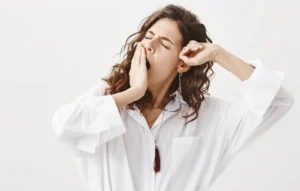We offer medical detox and multiple addiction treatment options in our
luxury treatment centres in Port Hope, Cobourg, and Ottawa.
The Role of Gender in Substance Use
Addiction does not discriminate, but it does manifest differently in men and women. Understanding these differences is a crucial component of effective treatment. Studies on addiction by gender reveal distinct patterns in substance use and treatment needs. For example, men are more likely to abuse substances for social reasons, while women often do so to cope with trauma or mental health issues. According to the National Institute on Drug Abuse, men and women also react differently to certain substances and experience unique withdrawal symptoms.
Key Takeaways
- Biological Differences Shape Impact: Women metabolize substances differently than men, experiencing faster progression and distinct physical effects across various substance types.
- Triggers Vary by Gender: Social pressures drive most male substance use, while trauma, relationship stress, and mental health challenges typically motivate female patterns.
- Treatment Needs Differ Significantly: Women respond better to trauma-informed care and holistic approaches, while men benefit from programs addressing emotional expression and identity concerns.
- Specialized Programs Improve Outcomes: Gender-specific treatment environments create better engagement rates and support systems tailored to unique recovery challenges.
- Relapse Patterns Follow Gender Lines: Men face stress-related and social triggers more often, while women encounter emotional and relationship-based relapse risks.
Knowing how gender influences addiction can help families, friends, and professionals better support their loved ones in recovery. It’s not just about understanding the “why” of addiction, but also the “how.” Exploring addiction through the lens of gender differences is vital for creating effective recovery strategies. These differences range from the types of substances used to recovery patterns. Why does this matter? Because being aware of these factors can make all the difference in seeking the right kind of help.
Want to learn more? Read on to understand why recognizing these differences could be a game-changer in addiction recovery.

How Gender Affects Substance Use?
When it comes to substance use among men and women, biological, psychological, and social factors play a significant role in shaping their experiences. Let’s break it down.
Biological Differences
The way men and women metabolize substances differs due to biological factors. For example, women have a higher percentage of body fat and lower water content, which causes alcohol and drugs to be metabolized more slowly. This leads to quicker intoxication and greater health risks for women. Men, on the other hand, tend to consume more substances due to a higher tolerance, which often leads to chronic use.
Psychological Factors
The reasons for substance use also vary between genders. Women are more likely to use drugs or alcohol to cope with psychiatric problems like anxiety or depression, while men might use substances to enhance social situations or deal with external stressors, such as conflicts at work or in relationships.

Social Influences
Social expectations also shape how substance use is perceived in men and women. Women often face more stigma and shame, which can cause them to hide their addiction or delay seeking help. In contrast, men may feel pressured to use substances as a sign of masculinity, making them less likely to admit when they have a problem.
What Are The Differences in Addiction Between Men And Women?
Addiction and gender create distinct patterns that shape how substances affect individuals. Men typically develop dependencies faster and consume larger quantities, while women face unique biological vulnerabilities and faster progression to severe addiction stages.
These differences guide the development of more targeted treatment approaches. Let’s see the following comparison that highlights key distinctions between how men and women experience substance use disorders:
| Aspect | Men | Women |
| Age of First Use | Earlier onset (mid-teens) | Later onset (early 20s) |
| Progression Speed | Slower development to dependency | Faster "telescoping" progression |
| Primary Substances | Alcohol, cocaine, cannabis | Prescription drugs, alcohol, sedatives |
| Usage Patterns | Higher quantities, binge episodes | Lower amounts, daily consistent use |
| Initial Triggers | Social pressure, peer influence | Emotional trauma, relationship stress |
| Biological Vulnerability | Higher tolerance development | Lower body water, faster intoxication |
| Physical Health Impact | Liver damage, heart disease | Reproductive issues, bone density loss |
| Mental Health Co-occurrence | Antisocial behaviour, aggression | Depression, anxiety, eating disorders |
| Social Consequences | Legal troubles, workplace issues | Family disruption, social isolation |
| Treatment Engagement | Reluctant, delayed help-seeking | More willing but face practical barriers |
| Recovery Obstacles | Stigma, masculine identity threats | Childcare responsibilities, financial dependence |
| Relapse Patterns | Stress-related, social situations | Emotional triggers, relationship conflicts |
Beyond these general patterns, specific substances create gender-specific challenges. Alcohol affects women differently due to lower water content in their bodies, leading to higher blood alcohol concentrations from smaller amounts. Women develop liver cirrhosis faster than men, even with less alcohol consumption over shorter periods.
Opioids present particularly complex gender dynamics. Women's drug treatment often addresses prescription painkiller dependencies that began with legitimate medical needs. Female metabolism processes opioids differently, creating stronger pain relief but also increased addiction risk. Hormonal fluctuations during menstrual cycles can intensify cravings and withdrawal symptoms.
Stimulants like cocaine and methamphetamine affect reproductive systems differently across genders. Women experience more severe cardiovascular complications, while pregnancy complications create additional treatment complexities. Men show higher rates of aggressive behaviour and legal troubles related to stimulant use.
Cannabis dependency patterns also vary significantly. Women report using cannabis more often for anxiety and depression management, while men typically use it recreationally. Female users develop tolerance faster and experience more severe withdrawal symptoms when stopping.
These biological and social differences underscore why women's and men's addiction requires specialized approaches. Effective treatment programs recognize that gender influences everything from substance choice to recovery motivation, creating pathways that address these distinct needs rather than applying universal solutions.
Gender Differences in Treating Substance Use
Research highlights that men and women experience substance use differently, so treatment must be equally diverse. Tailoring addiction treatment to meet gender-specific needs significantly raises the chances of successful recovery.
Addressing Unique Needs
Women’s treatment often needs to address experiences such as trauma, domestic violence, or parenting concerns. Providing a safe and supportive environment is essential. Programs that focus on emotional healing, mental health support, and even childcare options can help women commit to recovery.

For men, addiction treatment often focuses on improving coping mechanisms and dealing with external stressors. Men are less likely to admit their feelings or seek help, so therapies that encourage emotional expression, such as support groups with male peers, are highly effective.
Handling Emotional Triggers
Women often turn to substances as a way of managing deep-seated emotional pain, so trauma and anxiety-related therapies are essential. For men, addressing feelings of anger, inadequacy, or stress is critical. Cognitive behavioural therapy (CBT) or motivational interviewing can help reframe thought patterns and reduce risky behaviours.

Leveraging Support Systems
Support structures differ as well. Women often thrive in communal environments that foster empathy and shared experiences. For men, programs promoting personal responsibility and mentoring are more effective. Gender-specific support groups provide a space for individuals to share openly and draw strength from each other’s experiences.
Addiction Treatment for Men vs. Women
Addiction treatment varies between the sexes because addiction is influenced emotionally, psychologically, and socially in ways that differ by gender. Understanding these subtleties helps professionals create more effective recovery plans based on individual needs.
Emotional Focus
Women often enter treatment with high levels of emotional pain, frequently tied to conditions like anxiety, depression, or post-traumatic stress disorder (PTSD). Treatment for women should centre around emotional safety, trauma healing, and building self-esteem. Approaches such as trauma-informed care or holistic methodologies that address both the body and mind are effective.
In contrast, men are less likely to show emotional vulnerability and may mask their feelings with aggression, denial, or humour. Treatment for men must focus on breaking down emotional barriers, increasing emotional intelligence, and creating a safe environment for emotional release. Group counselling and one-on-one sessions with male mentors can help build trust and foster growth.

Psychological Differences
They may need a more psychological approach to understanding emotional triggers and how to handle stressors. Such therapies engender a sense of self-reflection and mindfulness that enable women to work through the substantive issues that led to their addiction.
Among men, the psychological approach may use techniques for the reversal of maladaptive thinking and environmental pressures. For men, behavioural therapy, such as CBT and motivational interviewing, can be highly effective in solidifying positive behaviour change. So, a good rehab centre offers tailored treatment plans that address individual needs.
Social Influences
Women often juggle multiple roles, such as being primary caregivers, which may prevent them from committing to long-term treatment. Flexible schedules and women-specific support groups can help overcome these barriers.
Men, on the other hand, may be influenced by societal expectations that encourage them to "tough it out" instead of seeking help. Programs that emphasize camaraderie, goal-setting, and accountability can be more appealing to men, helping them rebuild their identity and sense of purpose.
Both men and women benefit from starting their recovery journey with medically monitored detox, which provides gender-aware medical supervision during the critical withdrawal phase before transitioning to specialized treatment approaches.
Recovery doesn't follow a one-size-fits-all approach, and neither should your treatment. At the Canadian Centre for Addiction, we recognize that men's and women's addiction treatment requires different strategies, support systems, and therapeutic approaches. Whether you're struggling with substance use yourself or watching someone you care about battle addiction, our specialized programs address the unique challenges that gender brings to recovery.
Contact us today or call 1-855-499-9446 to learn how our treatment programs can support your path toward lasting recovery.
FAQs
How does addiction differ between men and women?
Differences in biology, psychology, and social influences mean that men and women experience addiction differently. Women progress more quickly into addiction, even with less substance use, due to hormonal differences and body composition. They are more likely to use substances to cope with trauma or mental health issues, whereas men tend to use them for social reasons or to escape external stressors.
What are the most common reasons women and men use drugs?
Women often use substances to alleviate emotional pain, anxiety, depression, or trauma, while men typically use them due to peer pressure or to manage stress related to work or finances.
Is alcoholism higher in men or women?
Men have historically shown higher rates of alcoholism and consume larger quantities more frequently. However, women develop alcohol-related health problems faster due to biological differences in processing alcohol.
Who is more prone to addiction?
Men typically show higher overall addiction rates across most substances, but women develop dependencies faster once they begin using. Both genders face unique vulnerabilities based on biological, psychological, and social factors.
Why does gender matter in drug addiction?
Gender influences everything from substance metabolism to treatment response, making personalized approaches more effective. Men and women face different triggers, social pressures, and recovery challenges that require tailored treatment strategies.
Do women relapse more than men?
Relapse rates vary by individual circumstances rather than gender alone. Women tend to relapse due to emotional triggers and relationship stress, while men face social and work-related pressures that can lead to substance use.
Are more addicts male or female?
Men represent a higher percentage of people with substance use disorders overall. However, the gap continues to narrow as prescription drug abuse and other factors affect women at increasing rates.





